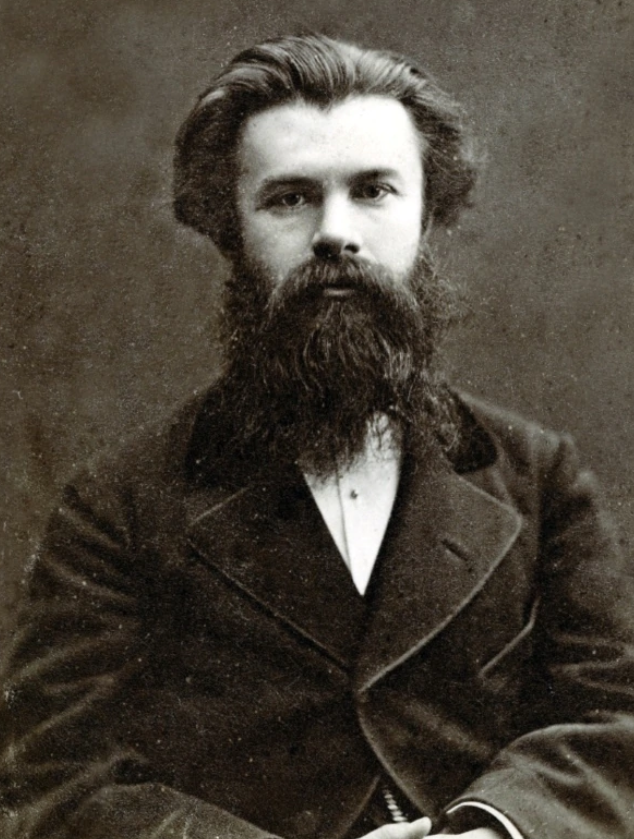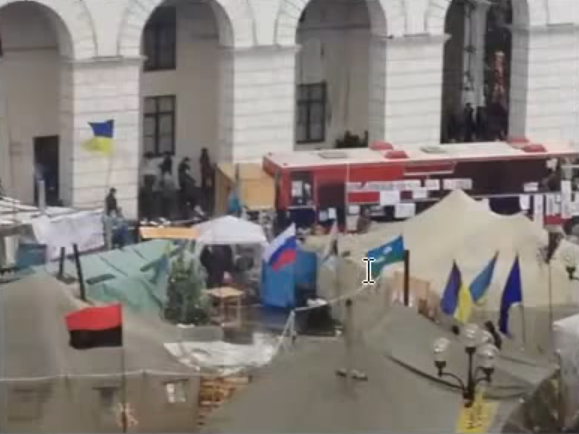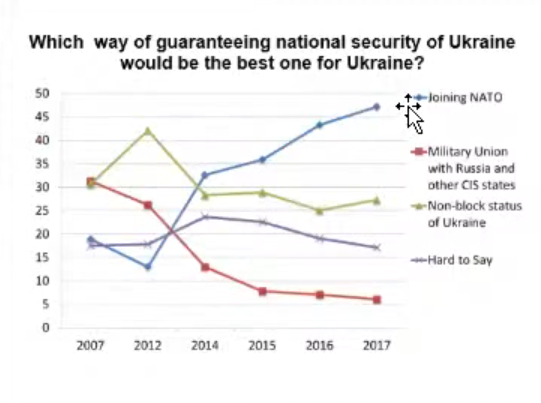The conference “Why Is Ukraine a Democracy?” was held on 1-5 February 2021 by the Temerty Contemporary Ukraine Program at HURI. It consisted of five panels with summaries being published afterward. The conference explored why, despite all grievances, Ukraine has succeeded as a democracy contrary to Belarus, Russia, and the majority of other post-Soviet states.
Historical roots
Looking for historical foundations of Ukrainian democracy, panelists mentioned the twin political crises in Ukraine and Russia in 1993. In Ukraine, the then-president and the next president competed for power while in Russia, President Boris Yeltsin clashed with the parliament. In Ukraine, the disagreement was resolved through negotiations, while in Russia by the consolidation of power. As historian Yaroslav Hrytsak put it, Ukraine “passed the test for democracy.”

Oleksandra Gaidai from the Ukrainian Institute also emphasized that 100 years ago, Ukraine encountered strong competition between different political ideas, which was the basis for democracy.
Then, after the dissolution of the Russian and Austro-Hungarian empires, the fledgling Ukrainian state was engaged in ultimately unsuccessful attempts to create an independent state, and the leaders of the endeavour held, at times, radically opposing views.
Hetman Pavlo Skoropadskyi, for example, had monarchical views, Symon Petliura was a politician of leftist views. Today, he is valued in Ukraine mainly for military success in 1917-1919. Intellectual foundations of Ukrainian democracy, according to Gaidai, were laid by Mykhailo Drahomanov, who advocated liberal values and social equality.
Yaroslav Hrytsak emphasized the division of power between church and secular rulers common for Ukraine and the rest of Europe, unlike Muscovy. This separation laid foundations for wider political competition and, subsequently, democracy.
Dominique Arel from the University of Ottawa and Nataliya Kibita from the University of Edinburgh also mentioned the role of Galicia, a region in western Ukraine, that had more democratic experience and social self-organization during the Austria-Hungary as well as Ukrainian dissidents of 1960s who were active throughout Ukraine, criticized the Soviet Union, and tried to protect human rights there.
Regarding Ukraine's recent history, panelists mentioned the role of Parliament, which is strong in Ukraine unlike in Russia or Belarus. It was the Rada that saved Ukrainian state legitimacy in 2014. Panelists also focused on a strong sense of regionalism
in Ukraine, which helped Ukraine safeguard against authoritarianism in the 1990s.
Mass mobilizations
Speaking about the nature of mass mobilization in Ukraine to save democracy, known as the Maidans, named after the square in central Kyiv where they started, panelists emphasized the horizontal nature of this mobilization. At least three such Maidans have been crucial in Ukrainian history: the Revolution on Granite (1990), the Orange Revolution (2004), the Euromaidan Revolution (2014). Protests emerged rather spontaneously, through the power of social networks. NGO's played only a secondary role.
Political scientists Olga Onuch from the University of Manchester and Lucan Way from the University of Toronto noted that Ukraine has a problem with the routinization of protest. The only way people can bring politicians into account is by protest, not discussion. Being good at securing democracy, Maidans at the same time undermine constitutional consensus and constantly change common rules.
For example, Olga Onuch cites research proving that when people can get their rights respected only through insurrection they will come out even more often and not only against existential threats. This may further weaken Ukrainian democracy. Lucan Way agreed, saying that democracy is about the rule of law while protests are always a violation of rules.

Political scientist Olexiy Haran emphasized, showing photos of the Russian flag present at Euromaidan, that some pro-democratic Russians also participated in the protest and later even fought for Ukraine in Ukraine's eastern region of Donbas, where Russia fostered a war after the victory of Euromaidan.
He also told about the wider impact of Euromaidan on public opinion, in particular, that support for NATO and the EU skyrocketed after the protests and remains high.

Haran also noted that not every mass protest is a Maidan. All the Maidans in Ukraine were directed against the usurpation of power and totalitarianism. What really made Euromaidan unique was the readiness of Ukrainians to "fight and die under the EU flag," Haran said.
International panelists also noted that the rise of far-right groups may threaten Ukrainian democracy while Olexiy Haran opposed them, saying that even in the most far-right regiments of the Ukrainian army such as the Right Sector many Jews or Russian-speakers were fighting. What is often called far-right is about state protection in Ukraine rather than xenophobia.
Francis Fukuyama: Lessons from Ukraine's transition to a democracy
The keynote speaker of the conference Francis Fukuyama elaborated on the strengths of Ukrainian civil society that both in 2004 and in 2014 saved democracy and still keeps politicians accountable.
At the same time, he noted, the lack of stable institutions and politics-free bureaucracy creates instability. Building such institutions is difficult in post-communist countries because the Soviet bureaucracy was so deeply infiltrated by politics; there was no tradition of impersonal bureaucracy before 1991.
It is not so difficult to create parties, to hold elections, but it is much more difficult to organize a modern state apparatus that will be professional and efficient. Civil society also bears part of the blame for the failure to secure an effective bureaucracy -- it has learned to criticize poor governance but has not created the conditions for a better system of governance.
Fukuyama also elaborated on the problem of private media control for political benefits and then business benefits, which undermines democracy and creates a closed circle. He called this the "formula of Berlusconi."
"He used his influence over the media to secure his election, and then he used his political power to protect his economic interests," Fukuyama said.
Democracy is susceptible to this phenomenon for it values freedom of the press. Asked about sanctions against TV channels, Fukuyama said government regulation is justified in such cases when the TV is controlled by oligarchs.
The transition to democracy in Ukraine is the most important democratic transformation taking place in the world today, Fukuyama also noted. The outcome in Ukraine will determine the future of Russia and Belarus.
Institutions and reform
Despite an active war, corruption, and other problems, Ukraine continues to maintain the competitiveness and democratic participation of its public institutions. NGOs are also held in high regard and respected.
The main problem of Ukrainian democracy, according to Olha Aivazovska from Civil Netwok OPORA, is that the pluralism of opinions in the political space is limited by pure diversity of media owners.
Oligarchs own the main TV-channels and then convert their media influence into votes. Aivazovska also mentioned the reform of judiciary system as well as development of parties' institutionalism to make Ukrainian democracy stable.
Margarita M. Balmaceda, Professor of Diplomacy and International Relations at Seton Hall University, noted that Soviet institutions and administrative practices still remain in Ukrainian public administration and this makes oligarchs possible.
She especially stressed the inefficiency of the management of current and former state-owned enterprises and in regulatory agencies that should oversee compliance. This enabled many private entities to obtain personal benefits from state agencies or enterprises.
Post-Soviet privatization in industry and agriculture not only did not break the link between business and the state, but also made many people more dependent on local elites. The market was not backed by an effective state and the rule of law and this is the main problem in contemporary Ukraine that reforms should solve, according to Balmaceda.
How did the Ukrainian oligarchy keep going after Euromaidan?
Rostyslav Pavelnko from Kyiv-Mohyla Academy, former advisor of ex-president Poroshenko, noted that Ukraine, having elected Zelenskyy, is passing the test of
populism. Quite successfully so far, since the state remains stable. Moreover, the government even refers to the opinion of civil society as a guide for its policy, for example, in establishing "red lines" that should not be crossed in negotiations with Russia. He also welcomed the government's latest steps in combating Russian propaganda.
Jessica Pisano from the New School for Social Research also noted that Ukraine is more European than many European countries in a sense that despite mass killings during the Soviet and Nazi occupation, Ukraine has retained its multicultural character. Despite diversity, Ukraine effectively demonstrated political unity and Russian narrative about two Ukraines has failed.
Displacement and Reintegration in Crimea and Donbas
All panelists agreed that reintegration of occupied Crimea and Donbas should be about the reintegration of people first of all, and only then territories. As years pass, a new generation is growing up that never lived in Ukraine and doesn't know about Ukraine.
Therefore, it is necessary to create positive conditions for the people still crossing into government-controlled Ukraine from the occupied territories, in particular regarding state institutions and the services they encounter.
This is the practical meaning of the Ukrainian state for those people and it should result in a positive experience. Generally, completion of reforms and Ukrainian successes would be the main argument for locals in favor of Ukraine, speakers agreed.
Oleksandra Matviychuk from the Center for Civil Liberties also noted that despite the fact that Russia has annexed Crimea with the assurance that "the local population wanted it," the Russian authorities treat locals as potentially disloyal. Russia actively tries to change the demographics of peninsula, colonizing it by Russians and Russian military, which may create a strategical threat for Ukraine.
Ukrainian MP Rustem Umerov also said that while Ukraine has the Minsk platform for the purpose of the deoccupation of Donbas, there was nothing similar for the deoccupation of Crimea. That is why the Crimean Platform was recently created. Joined by dozens of states already, it may well become a diplomatic success for Ukraine.
READ OUR INTERVIEW WITH EMILY CHANNEL-JUSTICE, DIRECTOR OF THE TEMERTY CONTEMPORARY UKRAINE PROGRAM AND ORGANIZER OF THE CONFERENCE

